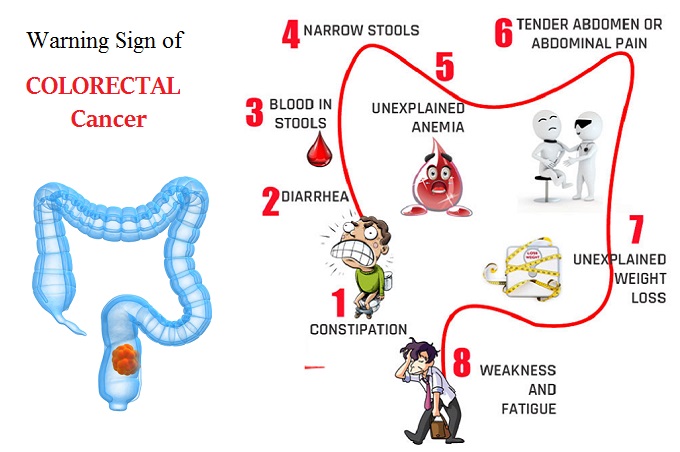

Fountain Valley Urgent Care Permanently Closed. We’re Here to Care for You at Our Other Locations.

Colorectal cancer, or colon cancer, occurs within the colon or rectum. This disease affects men and women and is most often found in adults at the age of 50 or more. Colorectal cancer has taken over 50,000 lives each year – making it the second leading cause of cancer death and the third most common cancer in the US.
Most colorectal cancer cases begin as small clumps of cells called adenomatous polyps. Over time, polyps may become colorectal cancer. Therefore, most doctors recommend receiving regular screening tests, at the age of 50 or more, to remove any polyps before they lead to cancer.
So how does colorectal cancer occur? According to the American Cancer Society, here are known factors that increase the risk colorectal cancer:
Personal or family history
Physical inactivity
Obesity
High consumption of red and/or processed meats
Smoking
Moderate-to-heavy alcohol consumption
There are many known factors that can increase the risk of colorectal cancer; however, there are also factors that can decrease it as well.
Here are 4 important ways to lower your risk of colorectal cancer:
Regular Colonoscopy Visits
A colonoscopy is a procedure that allows the examination of the entire colon and rectum. Before proceeding with a colonoscopy, patients must cleanse the colon with special laxative agents. These screenings look for cancer before signs and symptoms develop. Studies show that a colonoscopy is the most sensitive method for the detection of colorectal cancer or adenomatous polyps.
Maintain a Healthy Diet
Maintaining a healthy diet involves understanding which foods are better for your body. Here are foods that increase and decrease the risk of colorectal cancer:
Eat more fruits, vegetables, and whole grains. It’s been proven that these healthy foods reduce the risk of colorectal cancer.
Reduce eating red meats and processed meats. Red meats include beef, pork, or lamb, and processed meats include hot dogs or luncheon meats. These foods have been proved to increase the risk of colorectal cancer.
Reduce Any Bad Habits
Bad habits eventually become addictions, which only increases the risk of harming your body. These bad habits include smoking, drinking alcohol, and not watching your weight. Here’s what you should know:
Quit smoking. Long-term smokers have a higher risk colorectal cancer than those who don’t smoke. If you wish to quit, or you know someone who needs to, call the American Cancer Society at 1-800-227-2345. Receiving help from others increases your chance of quitting.
Limit your alcohol consumption. People who drink an average of 2 to 4 alcoholic beverages per day has a 23% higher risk of colorectal cancer.
Watch your weight. Obesity increases the risk of colorectal cancer mostly in men. A physically active lifestyle is important in reducing such risks.
Regular Exercise
When it comes to colorectal cancer, individuals who exercise regularly are more likely to remain cancer free. By strength training at least two times a week, the body is able to maintain a level of health that allows for improved circulation, the reduction of free radicals, and a digestive tract that functions more efficiently. Even walking or swimming can have an impact on a person"s ability to remain cancer-free for several years.
Regular exercise strengthens your entire body. The increased circulation helps to eliminate toxins and contaminants that can have a direct impact on the health of the colon. Vigorous exercise also increases the lungs" capacity to utilize oxygen at a much higher volume. Increasing the amount of oxygen available to the cells of the body also increases the body"s ability to fight disease, including colorectal and other types of cancer.
As always, it’s important to receive regular checkups to reduce your risk of colorectal cancer. Schedule an appointment or give us a call at one of our primary care centers. We have locations in Irvine, Fountain Valley and Costa Mesa, with physicians that are here to help.
Share Your Valuable Thought